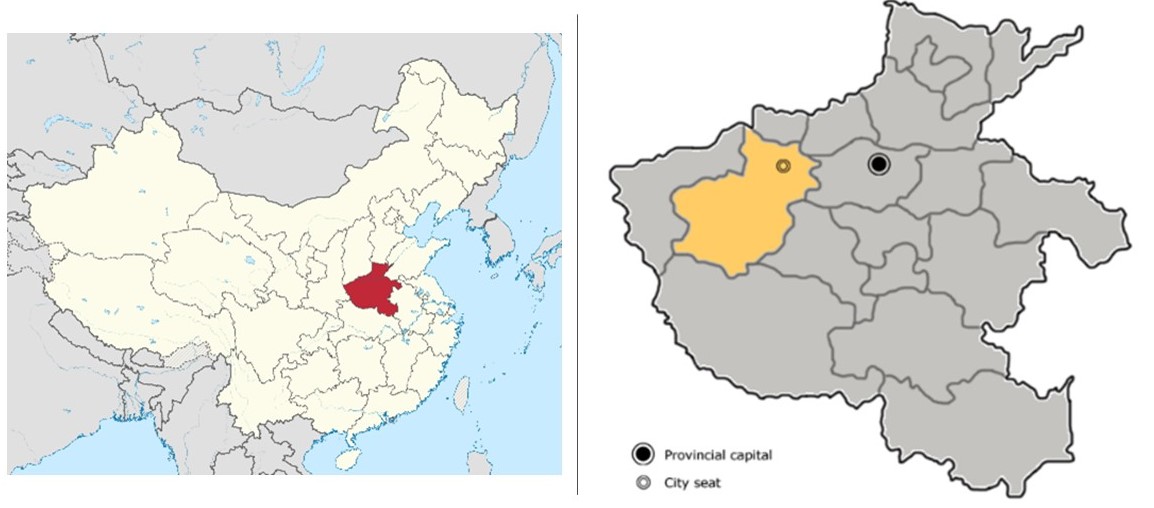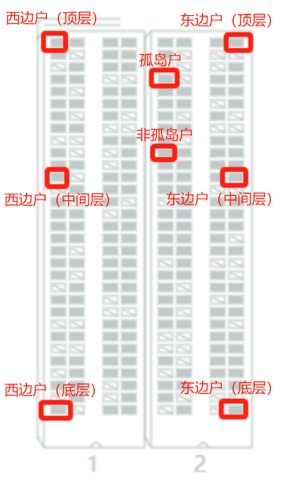Summary
This article, based on Luoyang District Heating Group Co., Ltd.’s experience with heat metering reform, provides a analysis of the company’s practices in building and managing a household metering system, guiding consumer behaviour, and discussing the challenges faced during the reform process, along with suggestions for future development.

Overview of the Heat Metering Reform
Established in 1986, Luoyang District Heating Group Co., Ltd. is a mixed-ownership company responsible for providing centralized heating services to several districts in Luoyang City. Currently, the company serves a heating area of 58.54 million square meters, covering 70% of the city’s total heating area. The heating season lasts from November 15 to March 15 each year.
Since 2008, Luoyang District Heating Group has been exploring heat metering reform and, by 2010, the company had implemented household metering in newly built residential communities, using a two-part heat pricing system. By the 2023-2024 heating season, 40.58 million square meters of heating area will implement metered charging. Among this, 26.47 million square meters of residential buildings will adopt a two-part heating price system, consisting of a basic heating fee and a variable metered heating fee. Currently, this heating model has been implemented in 243 communities, yielding positive results.

Compared to communities that charge a fixed price based on heating area, communities that implement heat metering show significant energy-saving effects, especially in energy-efficient buildings, where the energy savings reach about 20%. During the 2023-2024 heating season, heating users saved approximately 1.3 million GJ of heating energy, equivalent to financial savings of approximately 51. 5 million Yuan.
Fostering and Encouraging Energy-Saving Habits Among Heat Consumers
Through the implementation of household metering, Luoyang District Heating Group has effectively encouraged heat consumers to translate energy-saving awareness into practical behaviour. Within their heat range, there are various consumer behaviour types, such as high-temperature demand, low-temperature demand, and intermittent heating demand. By adjusting their heating according to their needs, heat consumers have not only met their comfort requirements but have also significantly reduced energy consumption and costs. The household heat metering system enables heat consumers to adjust their heat supply flexibly, resulting in more efficient energy use, contributing to both household savings and overall energy conservation.
Construction and Operation Management of Household Metering Heating Systems
In constructing and managing household metering heating systems, Luoyang District Heating Group has adopted various advanced technologies. The construction of heat substations and secondary networks uses intelligent control systems, combined with climate compensation and variable flow regulation strategies, to ensure the efficient operation of the heating system. The company has also selected high-quality heat meters and developed flexible data collection schemes based on building types and consumer needs.
If energy saving and emission reduction can be achieved through the joint efforts of heating suppliers and users, it will yield significant results. To better encourage heat users to save energy, Luoyang District Heating group has launched a mobile app. This app synchronizes with the metering system data, allowing access to reliable and accurate heat meter data and user room temperature. Heat users can easily and quickly check their daily heat consumption, room temperature, and cost bills, enabling transparent consumption and clear control over their heating consumption, thus facilitating better regulation of room temperature and truly achieving on-demand heating while saving energy and costs.
These measures have not only improved system efficiency but also made heating more precise and transparent. This data-driven, intelligent management model effectively promotes consumer-driven energy savings and enhances the service level of heating enterprises.
Advantages and Disadvantages of Household Metering
The reform of household metering has led to significant energy savings and management benefits. It effectively alleviates the pressure on heat sources and encourages heat consumers to change their heating habits, achieving energy conservation and carbon reduction. Moreover, household metering provides consumers with a clearer understanding of their heating consumption, reducing heating disputes and providing data support for solving heating problems. However, this model also presents challenges. The construction cost of household metering systems is high, and the management workload and costs have increased accordingly.

Additionally, typical urban buildings in China are high-rise structures with complex internal layouts, where inter-unit heat transfer and positional differences affect energy consumption. For example, edge, top, and bottom-floor heat consumers consume more heat than the average for the entire community due to their location. This energy consumption disparity may lead some residents, whose heat consumption per area is higher due to building structure or usage habits, to be dissatisfied with the household metering fee standards.
Analysis of Luoyang District Heating Group’s years of household metering data shows that heat consumer energy consumption is influenced by various factors, such as heating habits, occupancy rate, and location. It is noticeable that the analysis of energy differences for consumers in edge, top, and bottom positions may lack general significance due to insufficient data.
Recommendations for Promoting Household Metering
To further develop household metering, Luoyang District Heating group offers several recommendations.
Firstly, all levels of government should play a leading role, strictly enforcing relevant policies and regulations, improving the monitoring and inspection rules for metering devices, and promoting the implementation of household metering charges.
Secondly, heating companies should assume primary responsibility for household metering, actively responding to national energy-saving and emission-reduction initiatives and encouraging consumer participation through publicity and technical support.
Additionally, setting household metering heat prices that take into account heat consumption and real cost is crucial for balancing the interests of heating companies and consumers. They also highlight that resolving the issue of heat meter replacement costs is key to ensuring the smooth progress of heating metering reform.
Conclusion
Through the 16 heating seasons of practice, Luoyang District Heating Group has demonstrated that household metering is an effective methodology, capable of stimulating heat consumers energy-saving enthusiasm and achieving a win-win situation for residents, enterprises, and the government. However, the heating metering reform still faces challenges, particularly in clarifying responsibility, reasonably setting heating prices, and resolving the issue of meter replacement costs. In the future, stakeholders in the heating sector need to continue exploring and innovating to drive the sustained progress of household metering.
Please note that this article has been developed based on material provided by Luoyang District Heating Group. It is important to recognize that this entity operates more as a commercial enterprise rather than a public authority.
Share this
Sector: District energy
Country / Region: China
Tags: behavioral factors, district heating, smart metersIn 2 user collections: Urban Climate Neutrality (China) , Sino-Danish Clean and Renewable Heating Cooperation Centre – Library
Knowledge Object: User generated Initiative
Publishing year: 2024




